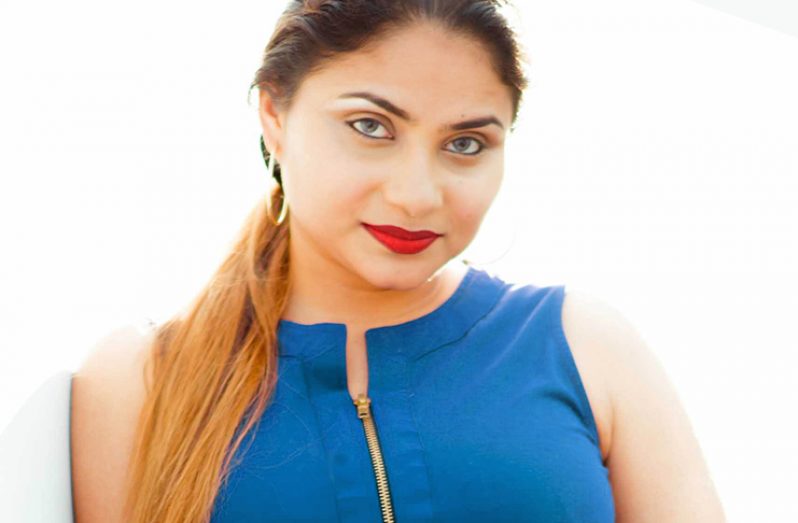THE Heal Guyana Civil Society Organisation, which launched an anti-racism initiative in August of this year, is now calling on all Guyanese to unite in order to end violence against women and girls in Guyana.
Over the next 16 days, beginning today and up until Human Rights Day on December 10, practical recommendations for dealing with abusive relationships will be published and promoted daily throughout the organisation’s social media network, advising victims of domestic violence and how to stay safe in the event of life-threatening situations.
There will also be recommendations for those who are not directly involved in violent relationships but are witnesses to abusive situations.
Heal Guyana’s Founder Sharon Lalljee-Richard explained, “It is important to realise that our mindset plays a significant part in keeping the scourge of domestic violence alive and growing in Guyana. Every time we witness a violent incident between a couple and we comfort ourselves with the thought that says, ‘yuh don’t get into man and woman story’, we inadvertently make it socially acceptable for a crime (which is punishable by law) to be committed, reinforcing violence as a norm within our society and becoming a part of the problem ourselves.”
Lalljee-Richard said each time a woman is physically abused by her partner and she comforts herself by saying, “If he doesn’t beat me, he doesn’t love me,” she is deluding herself as to what ‘love’ really is, as a result of low self?esteem. It is, therefore, an imperative for her to get urgent professional help which can restore her sense of self-worth and start her on the road to healing.
“But she must be courageous enough to take that first step and we must as a collective, do all that we can to help her get there. Too often as neighbours, family members and friends, we relinquish our power by not taking a stand, because we feel it will be a waste of time. We become disappointed and disparaged and to appease ourselves, we turn a blind eye to the continued abuse, feeling powerless or unwilling to intervene,” Lalljee-Richard said.
As much as this sort of emotion may be understandable under the circumstances, as a nation and as individuals, Lalljee-Richard said the nation must not give in to apathy and allow violence to thrive.
“You see, when a person is being abused, there are many hidden factors at play which often influence their decision to stay in a troubled situation, much longer than it is healthy for them to do so.”
Lalljee-Richard observed that factors such as mental illness caused by the abuse itself, cultural conditioning, poor self?image, inadequate emotional support or a gripping fear of increased poverty, especially if the abuser supports the home/children are sometimes frightening considerations for a victim which they must mentally overcome before they can feel confident to do what is necessary to step away from the relationship and change their lives for the better.
It is not always cut-and-dry for someone who is suffering and we must, therefore, remain patient and steadfast in our continued attempts to support and empower those who are being abused.
As an immediate benefit of outside intervention, an abuser may be more reluctant to inflict harm when they are made to feel that others are readily present and willing to take a dominant stand against their unacceptable behaviour, each time they attempted it. Even a stranger can intervene on behalf of someone who is being battered. Abuse is never a private matter. It affects our entire society, our future generations, and therefore, it impacts us all.”
She urged that the nation ought to begin seeing the true magnitude of this issue and get involved to stop the violence once and for all. Citizens are encouraged to ‘like’ and ‘follow’ ‘Heal Guyana’ on Facebook, Instagram, LinkedIn or Twitter in order to gain access to the recommendations being released over the next 16 days of activism which is the organisation’s response to the international campaign challenging gender-based violence against women and girls; an initiative originating from the Center for Women’s Global Leadership (CWGL) in 1991.
The CWGL is both an academic centre at the public research university (Rutgers) as well as a non-governmental organisation with ECOSOC Special Consultative Status at the United Nations working on policy and advocacy. The CWGL develops and facilitates women’s leadership worldwide, not only for women’s human rights but also for international social justice.
Lalljee-Richard affirmed that Heal Guyana’s number one recommendation to all victims of domestic violence is to end the troubled relationship with their abuser, as soon as possible. She added, “The knowledge being disseminated over the next few days is not intended to be a substitute for leaving but an interim strategy for staying safe while you prepare yourself to leave. Living in constant fear is no way to spend your life and Heaven forbid, you do find yourself in such a situation, know that no one else can help you unless you are brave and determined enough to help yourself.”
The organisation, which was launched in December 2017, currently has over 140 confirmed volunteers.
Their members are Caitlin Vieira, Saeed Hamid (Jr.), Lawrence Lachmansingh, Wil
Campbell, Sara Bharrat, Gerald Forde, Heetasmin Singh, Fidal Bassier, Patrick Mc Andrew, Tarron Kemraj, Rawle Small and Joshua Abdool.
Arun Sudesh Richard is the co-founder and the Board of Directors includes Sharon Lalljee-Richard, Rayann Hinckson and Egbert Alexander Carter.





.jpg)








